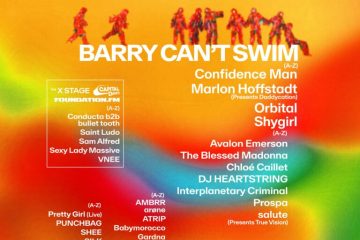Estonia’s Aspirations for Eurovision 2025

Introduction
As the excitement builds for the next Eurovision Song Contest in 2025, Estonia is positioning itself to make a memorable return to the iconic music competition. Known for its vibrant musical talent and rich cultural heritage, Estonia’s preparations for Eurovision 2025 are drawing attention. The country’s recent successes in the contest and evolving music scene have heightened expectations for what they will bring to the stage, making this a pertinent topic for both fans and participants.
Recent History and Results
Estonia has a rather impressive Eurovision track record, having won the contest in 2001 with Tanel Padar’s “Everybody”. More recently, the country has been known for its diverse range of musical styles represented by various artists, from pop to ethereal ballads. In 2023, Estonia’s entry, Alika, made headlines with her powerful voice, giving the nation renewed hope for its future in the contest. Following a string of participations that showcased its artistic versatility, Estonia is focused on crafting an unforgettable performance for Eurovision 2025.
Selection Process for Eurovision 2025
The Estonian National Broadcast (ERR) is expected to kick off the national selection process, typically known as “Eesti Laul”, which has successfully launched numerous Eurovision entries over the years. This competition not only allows local artists to showcase their talent but also engages the public in selecting the representative for the Eurovision stage. The selection process is anticipated to start in late 2024, where participants will submit their songs and compete for a spot in the grand final.
Thematic Focus for Eurovision 2025
Preliminary discussions regarding the potential themes and styles for Estonia’s Eurovision entry in 2025 hint at a desire to blend traditional Estonian music with contemporary trends. Artists and songwriters are encouraged to explore personal narratives and authentic emotional connections, a hallmark of successful Eurovision performances. Additionally, the blend of digital innovation with traditional elements may be crucial, reflecting the broader trends in the music industry and capturing the attention of a global audience.
Conclusion
Looking towards Eurovision 2025, Estonia seeks not just to participate but to leave a lasting impression on the contest’s history. As the national selection process approaches, fans and aspiring artists alike will be eager to see the direction Estonia takes. With a focus on creativity, cultural representation, and audience engagement, Estonia’s bid for Eurovision 2025 will be closely watched. The significance of this competition extends beyond music, presenting an opportunity for cultural exchange and national pride on an international platform.









